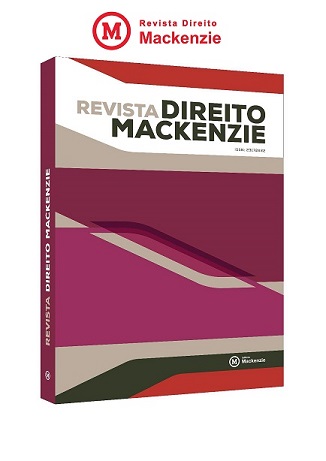QUANDO UM GRITO INTERROMPEU A ESCRITA DE MONTESQUIEU: SENSIBILIDADE MODERNA E ABOLIÇÃO DA TORTURA JUDICIAL NO SÉCULO XVIII
DOI:
https://doi.org/10.5935/2317-2622/direitomackenzie.v15n315059Keywords:
Montesquieu, sensibilidade moderna, tortura judicialAbstract
A tortura judicial, um procedimento normal de investigação criminal nos
países europeus a partir do século XIII, foi abolida no final do século XVIII. Acontecimento
bastante conhecido dos historiadores, as razões dessa abolição, entretanto,
não constituem um ponto pacífico entre eles. Segundo a história mais convencional,
durante muito tempo aceita, a abolição teria sido o resultado da luta de reformadores
penais como Beccaria contra a barbárie dos métodos antigos. Desde a publicação de
Vigiar e Punir, de Michel Foucault, porém, tornou-se dominante a tese de que as reformas
se deram por cálculos estratégicos do poder. Neste ensaio, explora-se a hipótese de
que, para além desses cálculos, uma sensibilidade de novo tipo, “moderna”, frente às
“dores inúteis”, foi um elemento crucial para a abolição.
Downloads
Published
Issue
Section
License
Copyright (c) 2021 Luciano Oliveira

This work is licensed under a Creative Commons Attribution 4.0 International License.
The copyright of the articles published in Mackenzie Law Review belongs to the authors, who grant Mackenzie Presbyterian University the rights of publication of the contents, and the assignment takes effect upon submission of the article, or work in similar form, to the electronic system of institutional publications. The journal reserves the right to make normative, orthographic, and grammatical alterations to the originals, with the aim of maintaining the cultured standard of the language, respecting, however, the style of the authors. The content reported and the opinions expressed by the authors of the articles are their exclusive responsibility.











